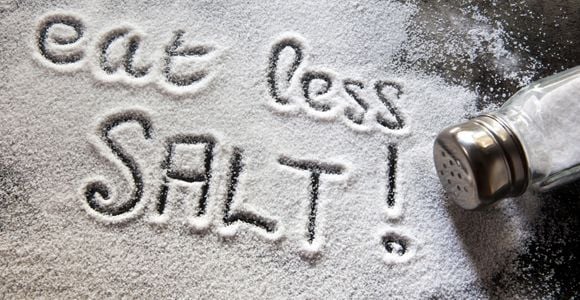Salt is everywhere. Walk through your grocery store and you'll notice countless new savory foods on the market. Restaurants continue to introduce new menu items that entice us with the taste of fat, sugar, and lots of salt. They use ingredients like bread, potatoes, vegetables, and meat that we all recognize and love, however, they're loaded with...can you guess? Salt. It's ubiquitous. And too much can potentially be dangerous.
The Effects of Salt on the Body
Salt takes a toll on the body. It causes us to hold onto water, making the kidneys work twice as hard to filter out toxins, chemicals, and pollutants. In the worst cases, this can lead to kidney failure or kidney disease.
The excess water can also create an increase in blood pressure, placing strain--not only on the kidneys--but the heart, brain, arteries, and our delicate blood vessels. Those dealing with high blood pressure are often given statin medications, or even diuretic pills, to help the kidneys remove excess fluid from the bloodstream. However, salt can counteract their effectiveness.
When strains are placed on the artery walls, they can become thicker and stronger, further increasing blood pressure. If the process continues for years, the arteries can burn or become too narrow and clog, depriving organs of nutrients and oxygen. Damaged arteries restrict the blood flow to the heart, leading to pains in the chest when exercising or even lying down. And just like the heart, the brain won't work at optimum levels if it's not receiving enough nutrients and oxygen. This can lead to dementia or Alzheimer's.
Tips for Eating Less Salt
It doesn't have to be like this! It's never too late to reduce your salt intake. But remember: your daily intake of salt should be no more than 2,000 mg per day. That's equivalent to one teaspoon of salt. We've got a few simple tips to help you cut down:
- Know what your intake is. You may be surprised at how much salt you're really eating. Keep a journal and write down the foods you're eating and take note of the sodium content.
- Be mindful of the sodium content in the foods you're buying. If it's highly salty, choose alternatives that are naturally low in salt. There are plenty of flavorful foods at the market that aren't loaded with salt.
- When seasoning your foods, alternate herbs and spices. Instead of salt, use great quality garlic, or onion powders, Herbs de Province, or perhaps start growing your own herbs.
- If you must have some salt, use sea salt and invest in a grinder. You'll find you don't need much at all to add some flavor.
Sherry L. Granader is a Sports Nutritionist, National Speaker and Spokesperson, Author of 2 healthy cookbooks, Writer, Ghost Writer, Nationally Certified Fitness Instructor and Personal Trainer. She has shared the stage with such celebrities as Whoopi Goldberg, Suze Orman and the late Governor Ann Richards and served as the On-Air Nutritionist for QVC television in the United States and the UK. She has cooked for her favorite bodybuilder, Lou Ferrigno (The Incredible Hulk) and his family, shared her nutrition expertise with Chuck Norris on the set of his movie "Sidekicks" and appeared on 8-time Mr. Olympia, Lee Haney's Championship Workouts on ESPN. Sherry hosted her own "Healthy Living" show on PBS for several years. For more information on Sherry, visit www.sgfit.com or write to Sherry at [email protected].



